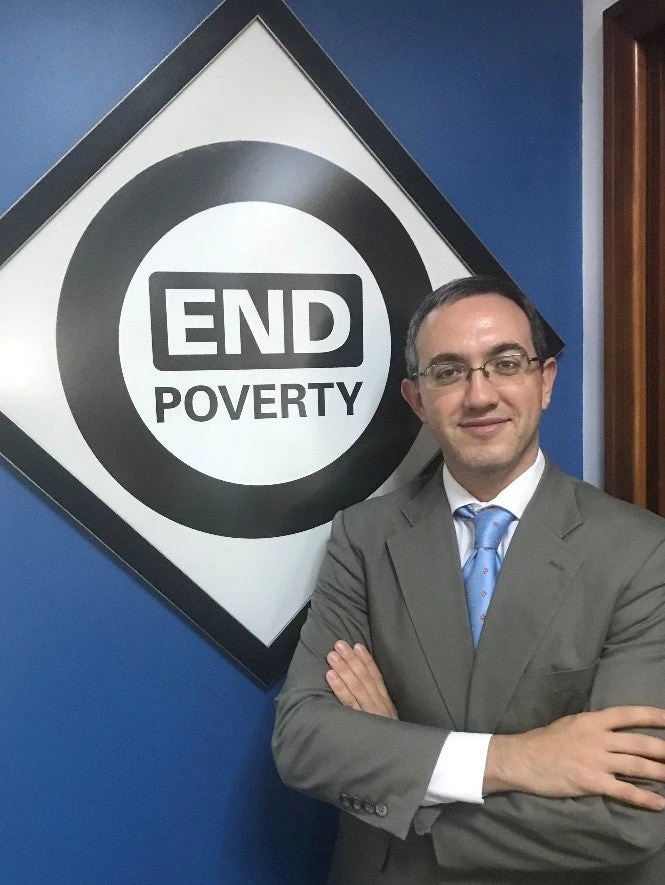Also available in: Español
Women maintaining roads? As their job? Until recently, the idea was pretty much unfathomable in many countries. But in Peru, it isn’t. Since 2001, the Peruvian government and the World Bank have been working hand in hand to ensure female workers can play an active role in the routine maintenance of rural roads. This is part of a broader effort to reduce the gender gap in rural areas, and to improve women’s access to social and economic opportunities.
Over the last two decades, a series of ambitious projects have allowed the rehabilitation 30,000 km of rural roads, and supported maintenance activities along 50,000 km. This type of large-scale road projects has created significant economic and employment opportunities for local communities, and this is why we wanted to make sure women could get their share. To make this happen, we organized trainings, developed specific programs that would improve women’s access to resources, and worked to eliminate the barriers that disadvantaged women (e.g. requirements related to literacy or previous construction experience). The result? In 2013, female participation in rural road maintenance microenterprises reached 27% during the Peru Decentralized Rural Transport Project.
Increased female participation brings clear, measurable benefits
The Peruvian experience demonstrates what can be achieved when infrastructure projects include specific measures for the economic and social empowerment of women:
In spite of these promising results, there is more work to do both to create an enabling environment and to eliminate the barriers that continue to stand in women’s way. Women in Peru still report they feel unprepared to participate in road maintenance activities. Others might be ready to take on microenterprise entrepreneurship with hard working conditions, but still have to reconcile this with the “double burden” of family care, including childcare. Moreover, women in Peru found other difficulties such as a lack of confidence about working alongside men, lack of information about available opportunities, resistance from their husbands, and tensions with community members who did not want to see traditional gender roles being challenged.
What’s next?
Moving forward, a recently-approved rural roads program (Support to the Subnational Transport Program) will build on the lessons learned from previous World Bank projects in Peru and around the world (e.g. Nepal, Honduras, Vietnam, Argentina and Nicaragua) to address the barriers that remain. There is a real opportunity to take this work further, increase the participation of women in the full cycle of road asset management, and develop skills that women microentrepreneurs can use to thrive not just in road maintenance but also in other economic sectors. Finally, we also need to take a closer look at the kind of policy incentives that can foster greater participation of women in road asset management and related productive activities. Collaborating with other teams will also be critical to creating synergies across sectors and generating innovative ideas.
Our team is determined to work closely with the rural roads agency Provias Descentralizado and continue building the road to gender inclusion. Hopefully we’ll have more progress to report on this very soon... Stay tuned for the next steps!
Learn more
Acknowledgements
The authors would like to express their gratitude to Nérida Aucahuasi (Provias Descentralizado) for her valuable comments and enthusiasm with this agenda, to Stephen Muzira, Karla Gonzalez, Miriam Muller and Xavier Muller (World Bank) and to Julia Schipper for their valuable comments.
Women maintaining roads? As their job? Until recently, the idea was pretty much unfathomable in many countries. But in Peru, it isn’t. Since 2001, the Peruvian government and the World Bank have been working hand in hand to ensure female workers can play an active role in the routine maintenance of rural roads. This is part of a broader effort to reduce the gender gap in rural areas, and to improve women’s access to social and economic opportunities.
Over the last two decades, a series of ambitious projects have allowed the rehabilitation 30,000 km of rural roads, and supported maintenance activities along 50,000 km. This type of large-scale road projects has created significant economic and employment opportunities for local communities, and this is why we wanted to make sure women could get their share. To make this happen, we organized trainings, developed specific programs that would improve women’s access to resources, and worked to eliminate the barriers that disadvantaged women (e.g. requirements related to literacy or previous construction experience). The result? In 2013, female participation in rural road maintenance microenterprises reached 27% during the Peru Decentralized Rural Transport Project.
Increased female participation brings clear, measurable benefits
The Peruvian experience demonstrates what can be achieved when infrastructure projects include specific measures for the economic and social empowerment of women:
- Improved access: The projects connected communities that were previously isolated, and the maintenance work helped keep the roads accessible throughout the year. These new, enhanced mobility options allowed more women to access essential services, markets, and opportunities. With easier and faster access to education and healthcare, school registration increased 19.2%, while the number of health consultations went up 17.8% in the communities that benefited from the Decentralized Rural Transport Project.
- Economic opportunities: Road maintenance microenterprises created new opportunities for women to make a living, resulting in improved living conditions for them and the rest of their household. The possibility of earning an income of their own contributed to the economic empowerment of women, and allowed them to have greater control over their financial decisions.
- Increase in overall project performance: Women’s participation in microenterprises fostered better results and an improved work environment. Women proved to be good work inspectors, promoted an enhanced spirit of solidarity and cooperation, were efficient interlocutors with the authorities, managed the finances of their microenterprise in a transparent and efficient way, and had a positive on punctuality.
- Confidence and leadership: economic and social empowerment encouraged participating women to take ownership of their lives and play a more active role in the decisions that affected them. Despite some initial hurdles, these women’s self-confidence and leadership improved drastically, leading some of them to set new personal life goals such as running their own businesses or becoming active in the political arena.
In spite of these promising results, there is more work to do both to create an enabling environment and to eliminate the barriers that continue to stand in women’s way. Women in Peru still report they feel unprepared to participate in road maintenance activities. Others might be ready to take on microenterprise entrepreneurship with hard working conditions, but still have to reconcile this with the “double burden” of family care, including childcare. Moreover, women in Peru found other difficulties such as a lack of confidence about working alongside men, lack of information about available opportunities, resistance from their husbands, and tensions with community members who did not want to see traditional gender roles being challenged.
What’s next?
Moving forward, a recently-approved rural roads program (Support to the Subnational Transport Program) will build on the lessons learned from previous World Bank projects in Peru and around the world (e.g. Nepal, Honduras, Vietnam, Argentina and Nicaragua) to address the barriers that remain. There is a real opportunity to take this work further, increase the participation of women in the full cycle of road asset management, and develop skills that women microentrepreneurs can use to thrive not just in road maintenance but also in other economic sectors. Finally, we also need to take a closer look at the kind of policy incentives that can foster greater participation of women in road asset management and related productive activities. Collaborating with other teams will also be critical to creating synergies across sectors and generating innovative ideas.
Our team is determined to work closely with the rural roads agency Provias Descentralizado and continue building the road to gender inclusion. Hopefully we’ll have more progress to report on this very soon... Stay tuned for the next steps!
Learn more
- Effects of Enhancing Women’s Participation in Rural Roads Projects on Women’s Agency: A Comparative Assessment of Rural Transport Projects in Argentina, Nicaragua, and Peru (World Bank working paper, 2014)
- Rural Roads in Peru (video series)
-
Rural roads projects in Peru (implemented by the national government with co-financing from the World Bank and the Interamerican Development Bank):
- Rural Road Rehabilitation and Maintenance Project (1995-2001)
- Second Rural Roads Project (2001-2006)
- Peru Decentralized Rural Transport Project (2007-2013)
- Regional Transport Infrastructure Decentralization (2006-2013)
- Support to the Subnational Transport Program Project (2016-2021)
Acknowledgements
The authors would like to express their gratitude to Nérida Aucahuasi (Provias Descentralizado) for her valuable comments and enthusiasm with this agenda, to Stephen Muzira, Karla Gonzalez, Miriam Muller and Xavier Muller (World Bank) and to Julia Schipper for their valuable comments.




Join the Conversation